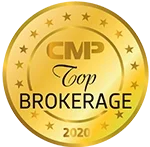Welcome to our guide on how to manage your money better with debt consolidation mortgages! If you’re tired of juggling multiple high-interest debts, this is for you. We’ll explain how combining your debts into a single mortgage can save you money and make your finances simpler.
Learn how to pay off debts faster and take steps toward a debt-free future. Let’s dive in and take control of your finances together!
What Is Debt Consolidation?
Debt consolidation is when you take all of your high interest consumer debts and take out a loan to pay them all off at once. You still have the same amount of debt at this point, but it has been consolidated – and with a loan that has a much lower interest rate than your were previously paying.
Debt consolidation has several advantages. A lower interest rate means that even if you continue making the exact same amount of payments on your debt each month, you will be paying down the principal faster and you will get out of debt sooner. Lower interest rates could also mean that you may be able to reduce your debt payments each month to make your finances more manageable.
Finally, because you only have one creditor to pay now instead of multiple creditors, making your payments becomes more convenient and you are much less likely to forget someone or miss a payment.
How Can I Consolidate My Debt?
When it comes to debt consolidation, there are a few different options that you can consider. If you are a homeowner, then borrowing from your home equity is usually one of the best options because you can likely borrow a fairly large amount of money and a very low interest rate. (Most lenders will let you borrow up to 80% of your home equity).
Your options for borrowing from your home equity are as follows:
- Second mortgage – with this option, you get a lump sum loan against the equity in your home. The interest rate is usually slightly higher than that of your first mortgage.
- Mortgage refinance – with this option, you break your first mortgage and get a new one for the original amount plus the amount of cash you need to borrow to consolidate your debt. With this option, you’ll likely get a better interest rate than you will on a second mortgage, but there will be a financial penalty to pay for breaking your first mortgage.
- Home equity line of credit (HELOC) – this option is a revolving line of credit that works more like a credit card than a regular loan. This option is most suitable for smaller amounts of consumer debt and for those who know that they have the self-control not to overextend themselves with borrowing.
If borrowing from your home equity is not an option for you, the other option for consolidating your debt would be to get an unsecured loan. This type of loan is not tied to your home equity and will have the highest interest rates of all the choices. (But it can still save you money and help you to get out of debt faster).
How Debt Consolidation Mortgages Work
Let’s explore how debt consolidation mortgages actually work.
- Assess Your Debts: The first step is to take stock of your outstanding debts. Create a compilation of your creditors, the remaining balances, and the corresponding interest rates linked to each debt.
- Determine Your Home’s Equity: To get a debt consolidation mortgage, you’ll need enough equity in your home. Equity is like the difference between the value of your home and how much you still owe on your mortgage.
- Consult a Mortgage Professional: It’s crucial to work with a mortgage professional who specializes in debt consolidation. They will help you determine the feasibility of consolidating your debts and guide you through the process.
- Refinance Your Mortgage: If it makes financial sense, you’ll refinance your existing mortgage to include the outstanding debts. The new mortgage amount will cover your current home loan balance and the consolidated debts.
- Make Timely Payments: With your debts consolidated into your mortgage, you’ll have a single, manageable monthly payment. Ensure you make these payments on time to maintain your financial progress.
The Benefits of Debt Consolidation Mortgages
Now that we know what a debt consolidation mortgage is, let’s explore the advantages it offers.
- Lower Interest Rates: One of the primary benefits of consolidating your debt with a mortgage is the potential for a lower interest rate. Mortgage rates are usually lower than the rates you get with credit cards and personal loans. By rolling your high-interest debts into a mortgage, you can reduce the overall interest you pay.
- Simplified Finances: Handling lots of different debts that have different due dates and interest rates can be a lot to handle. But with a debt consolidation mortgage, you only need to think about one payment each month. It makes things simpler for your money matters.
- Potential Tax Benefits: Sometimes, the interest you pay on a mortgage might be something you can use to lower your taxes, which isn’t possible with other types of debt. Still, it’s important to chat with a tax expert to know how this might work for you.
- Improved Credit Score: Paying off high-interest debts through a debt consolidation mortgage can positively impact your credit score. A lower credit utilization rate and timely payments can contribute to an improved credit profile over time.
How To Pay Off Your High Interest Debts Faster
Paying off you high interest debts is possible, and in this blog we are going to give you a few tips on how you can do it faster.
- Create a budget: Many people roll their eyes when they hear the word budget, but the only way that you will be able to get control of your spending is to know where your money is going. Once you figure out exactly how much income you have going in and how much expenditures you have going out, you can see what areas that you can cut back on in order to make extra payments on your debts.
- Reduce your expenses: Now that you have a budget, see where you can reduce your expenses. Don’t panic – it doesn’t have to be forever – just until your debts are paid off. For example, perhaps you can live without cable television for a while. Maybe you can carpool with a co-worker and save money on gas and parking. Or perhaps you can skip the morning coffee run and brew your own at home. Whenever you find a way to reduce your expenses, you can add the money you saved to your debt payments. You’ll be surprised how an extra $20 here and there can really add up!
- Find extra money: Another way that you can pay off your high interest debts more quickly is to find extra money. Did you get an income tax refund? Put it toward your debt! Are you able to pick up an extra shift at work? That can help you pay off your debt more quickly too. Consider trying your hand at some odd jobs or freelance work or perhaps you have something in your home that you no longer use that you can sell. Get creative and see how you can make some extra cash.
- Consolidate your debts: If you can consolidate your high interest debts into a lower interest loan, it will increase how much you are able to pay on the principal, which in turn will help you pay off your debts faster. For smaller amounts of debts, a simple line of credit from the bank may do the trick. If you have larger debts, then using the equity in your home may be your best option. This is where your mortgage broker comes in as they will be able to help you with consolidation strategies such as refinancing and second mortgages. These types of strategies can lower your interest payments considerably, not to mention roll all of your debt into one easy payment.
Conclusion
A debt consolidation mortgage can really help you manage your money better, make payments easier, and even save on interest. But it’s not the perfect answer for everyone. It has good points and things to think about. Before you go for it, talk to a money expert or a mortgage pro. They can help figure out if it’s right for you.
If you plan well and handle your money smartly, a debt consolidation mortgage could lead you to a debt-free future and more peace about your finances. Ready to find out more? Call 416-621-1300 or book a consultation today!




